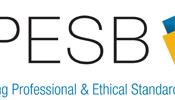Mgmt 254 B
Ethics in Leadership
We are seeing more ethical issues in the headlines every day. "It is more common in business management than in other areas of human endeavor. The facile answer would seem to be true, given the display of greedy and deceitful corporate parading before us in the news these days. But the facile answer is probably wrong." (Kiplinger,2002) Due to the fact our professional practices involve more ethical issues today, and we now have higher standards about issues that have always been there?
Ethical behavior is a key quality for leaders. It inspires trust, loyalty and effective leader-follower relationships. Today young executives are more worried about their company's is involvement in a hostile takeover and their fighting for existence than ethics. You don't have to put ethics on hold while trying to win a corporate battle. Without ethics, even if you win you lose. Every time we say or do something unethical, we cut away at the foundations of our moral character and the reputation of our organizations.
If we're going to make a difference, we must set high ethical examples for others to follow. While making a profit is the prime purpose of most businesses, it is common in the corporate world for profits to become the only measure of business success.
In competitive markets, when doing business often involves beating out the other guy, getting the best of the deal, turning one million into five, clear definitions of what is ethical and what is not can be difficult. How do you know when an action is a brilliant tactic or dishonest deal? A practical way of improving ethical decisions making is to consider the decisions through an ethics test, when any doubt exists.
This test was used at the center for Business Ethics at Bentley College:
When faced with an ethical problem, First ask yourself, Is it right? Is it Fair? Who gets hurt in the end? Would you be comfortable if the details of your decision were reported on the front page of your newspaper or through the company's email? Another question to ask yourself is would you tell your children to do it? How does it smell? There was a time when most people formed their ethical standards at home. But today leaders in all occupations and professions have the duty to help people form their ethical standards on the job as well. At the same time, we live in a world that presents more and more ethical gray areas. Circumstances attract us every day urging us to take the easy way out or to twist something just a little. The distinction between what is legal and what is unethical has become blurred.
The problem is worsened when the media exaggerates unethical behavior. While such stories sell newspapers and boost broadcast ratings, they make it easy to overlook the fact that unethical behavior is not the norm. We must nor become desensitized to unethical behavior just because we hear so much about it.
Further, each of us makes daily decisions about ethical behavior in various situations; thus we live with situational ethics. We are nor perfect, and rarely operate consistently at the highest ethical level. To do so mean that one always tells the absolute truth. Yet all of us have told "white lies" to keep from hurting another's feelings. This adds to the "graying" of our ethical standards.
In either case, we've lost sight of the shared values that allow effective leadership of a business or any other organization. Shared values are critical to building strong organizations and strong leadership.
If I plan on being a leader in my career, it is important to know when to take a stand on difficult issues. I can't lead if I am wishy-washy or indecisive. Yet that doesn't mean we shouldn't be open to new arguments. Many of the most significant ethical discussions have strong points on both sides. You and others may have completely different views, but you can't let that stand in the way of respecting each other's differences. "We can't be judgmental, or we cease to lead. Defining personal ethics can be difficult. But we make a large contribution and become better leaders when we do so, and encourage others to do so. It is good to keep in mind the goal that our forefathers created for us: F pluribus Unum, one composed of many That means working together for our common interests, hopes and values." ( Penton, 1999) As our workforce becomes more diverse, it is more important than ever for our leaders to bring from the melting pot a shared system of values.
There is another, very practical reason why ethics are essential to strong leadership. That is because ethical behavior is a key to establishing the trust and loyalty that are at the base of all effective relationships. Without trust, the contract between you and your followers collapses and your ability to lead, to inspire, to make a difference, is diminished. But a long-term investment in high ethics build and reinforces the foundation on which an organization is built.



Good essay
Well written essay on ethics and leadership.
3 out of 3 people found this comment useful.